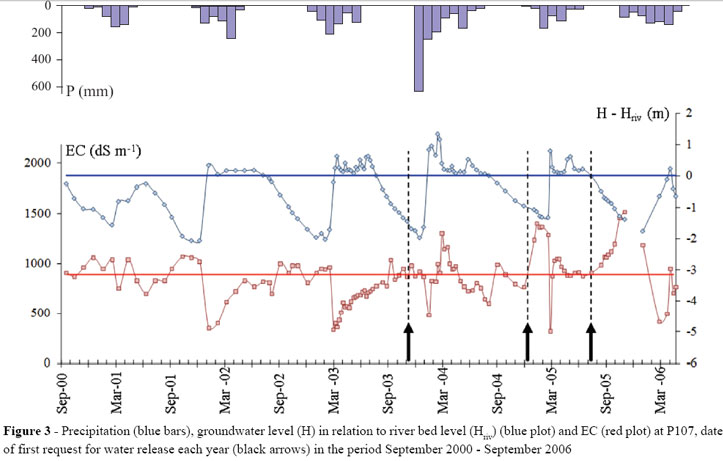Water from small alluvial aquifers constitutes an attractive and low-cost option for irrigation and rural development in Northeastern Brazil. Based on piezometric measurements, geochemical analyses and electrical conductivity estimates, the present case study identified the main processes determining the hydrosaline dynamics of an alluvial aquifer in a small watershed inserted in the crystalline bedrock of a semi-arid region in Ceará and evaluated the availability of water for irrigation. Accumulation of salts in soil are related to evaporative flux from the aquifer and is increased by irrigation from the groundwater of the alluvial aquifer. The water in these aquifers may be used for irrigation, but represents a risk of soil salinization and alkalinization. Integrated management of surface and underground water resources in the Forquilha watershed may help control irrigation water quality (salinity and residual alkalinity), thereby rationalizing the use of local reservoirs and minimizing losses from evaporation. It has to take into account the complex dynamic of salts and water between the reservoirs, release of water into the river, floods and irrigations.
Salinity; Groundwater; Irrigation












